Errant Thoughts
About Andrew Cusack
 Writer, web designer, etc.; born in New York; educated in Argentina, Scotland, and South Africa; now based in London.
Writer, web designer, etc.; born in New York; educated in Argentina, Scotland, and South Africa; now based in London. read more
News
Blogs
Reviews & Periodicals
Arts & Design
World
France
Mitteleuropa
Knickerbockers
Argentina
The Levant
Africa
Cape of Good Hope
Netherlands
Scandinavia
Québec
India
Muscovy
Germany
Academica
Articles of Note: 8 April 2025
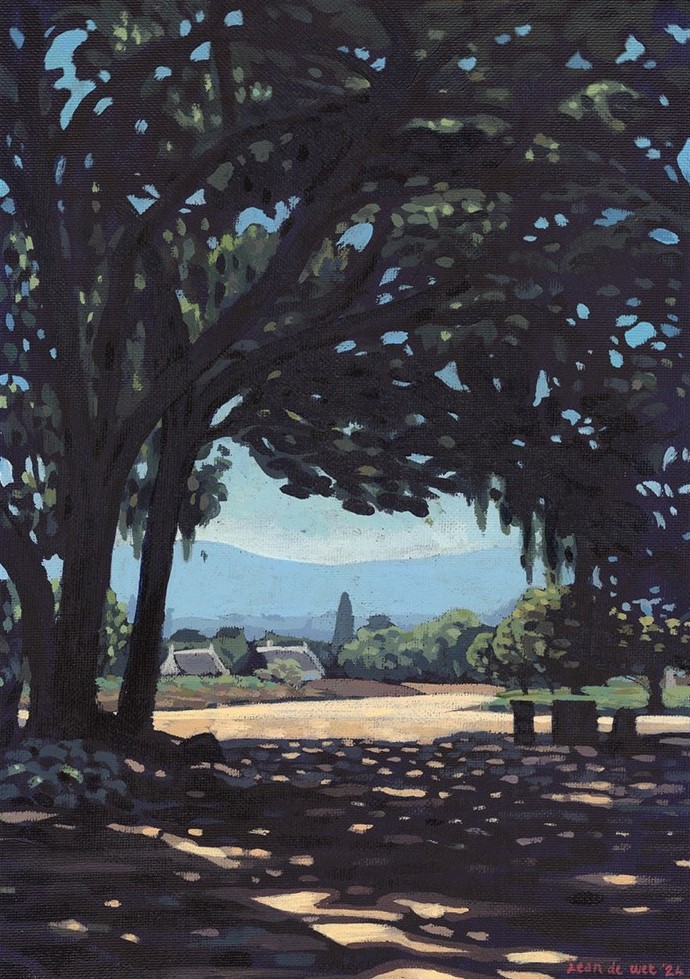
In Smithsonian magazine, Chris Heath has a rifle through the archives alongside the historian, who tells us about his first job with the New Brunswick Daily Home News:
In March 1959, Caro was diverted into what might have been a whole other career. Instead it turned into a pivotal life lesson. His newspaper was so enmeshed with the local Democratic political establishment that, come election time, the paper’s chief political reporter routinely took a leave of absence to write candidate speeches. This particular year, the reporter fell suddenly ill, and Caro was deputed to fill in. Suddenly, he was in politics. Caro supplied the required speeches, and even a campaign song—65 years later, he can still sing part of it to me—setting the names of the five Democratic candidates to the tune of the 19th-century standard “MacNamara’s Band.” Every so often, the campaign manager and city attorney Joseph Takacs would pull out a wad of $50 bills, peel off a few and hand them to Caro. It was more money than he had ever been paid.
It seemed like a dream job. But on Election Day, in mid-May, Takacs, who seemed to have taken a liking to Caro, invited him on his tour of the polling stations. At each stop, Takacs would have a cozy conference with the police overseeing the polls. Then, at one stop it was explained that there had been some trouble that was being dealt with, and Caro watched as Black protesters were herded into a police van. As Caro tells it, this was a moment of decision. At the next traffic light, he reached for the door handle. “I just got out of the car without saying anything,” he says.
And much more about his early days in the newspapers as well as his writing method. It inspired me to finally pick up a copy of The Power Broker.
■ Granny killing is the biggest political issue in the UK at the moment, though the attention it has received from the front pages is less than in real life, the group chats, and online.
The original legislation establishing the National Health Service tasked it to “secure improvement in the physical and mental health of the people of England… and the prevention, diagnosis and treatment of illness.”
Kim Leadbeater’s bill legalising and providing for assisted suicide, however, would require altering this.
In Compact, Dan Hitchens describes how assisted suicide will destroy the NHS.
■ Camille Paglia is a phenomenon whose reputation is having a second wind thanks to her breathless interviews and discussions on intellectual chat shows now shared on social media.
I don’t mean to dampen with faint praise but she’s probably the best thing ever to have come out of SUNY Binghamton.
Ella Dorn examines her own devotion to the cult of Camille Paglia for the Spectator.
■ Jews are a miniscule proportion of the global population but there are currently three Jewish heads of state.
At Engelsberg Ideas, Elijah Granet explores how Jewish leaders have defied the political odds to come out on top in the past century.
■ London is, alas, an increasingly undignified place to live.
Ellen Pasternack writes in this month’s issue of The Critic how you have to surrender a bigger and bigger chunk of your take-home salary to rent ever smaller accommodation that itself is often cramped and belittling.
The trends aren’t heading in the right direction.
■ There is a mischievous air to Fred Sculthorp. Whenever I see him he looks like he’s up to something, and he usually is.
The other day I ran into him (or rather he ran into me) on Victoria Street and he told me he was working on a piece on Dagenham.
He writes for Unherd about how this spectrum of far London and near Essex has been abandoned by the political establishment and is turning to Reform. “Bring back Rupert Lowe!”
■ Can Russians and Americans be friends? Richard Nixon has the answer.
Can Russians and Americans be friends? pic.twitter.com/0l8mzuyCbt
— Richard Nixon Foundation (@nixonfoundation) March 28, 2025
The Richard Nixon foundation is doing yeoman’s work on social media lately and well worth a follow.
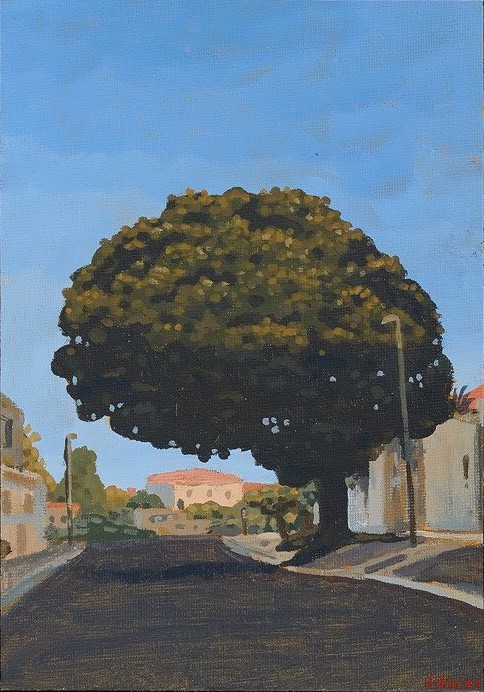
Teutonic Takeover
What is going on in Chile? They’re having a presidential election later this year, and the latest poll figures are out.
The top three candidates are all right-wingers descended from German immigrants, but with very different family backgrounds.
How their ancestors ended up in the Andean republic on the Pacific reflects the varieties of experience in the German diaspora in South America.
■ Read more over at my Substack.
Katalin Bánffy-Jelen, R.I.P.
I have the poet Ben Downing to thank for putting me on to the great Hungarian writer Miklos Banffy. I will always be grateful.
But the one to whom I should be even more grateful is the writer’s daughter Katalin Bánffy-Jelen who died last month, 100 years old.
She, along with Patrick Thursfield (d. 2003), translated the great Transylvanian trilogy from Hungarian into English.
There were obituaries in The Times and the Daily Telegraph.
After the war, Katalin married a US naval officer and they settled in Tangier, still then a free port under a sort of multinational administration.
I wonder if she would have known Fra’ Freddy’s father when he was British delegate to the International Legislative Assembly of Tangier.
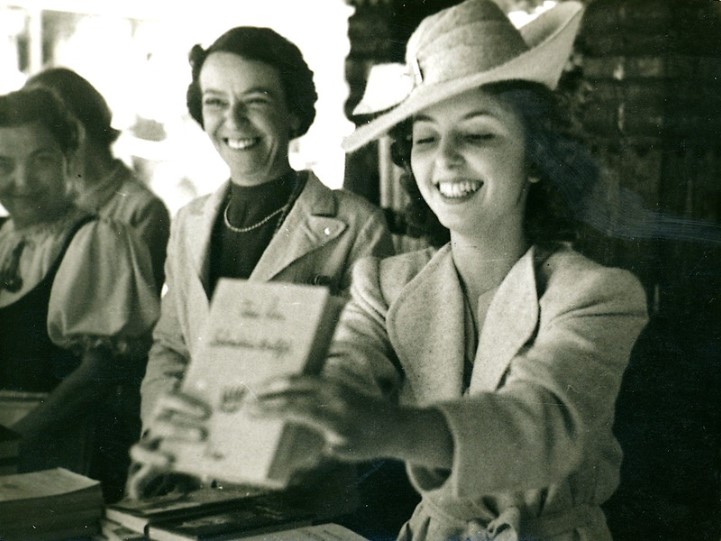

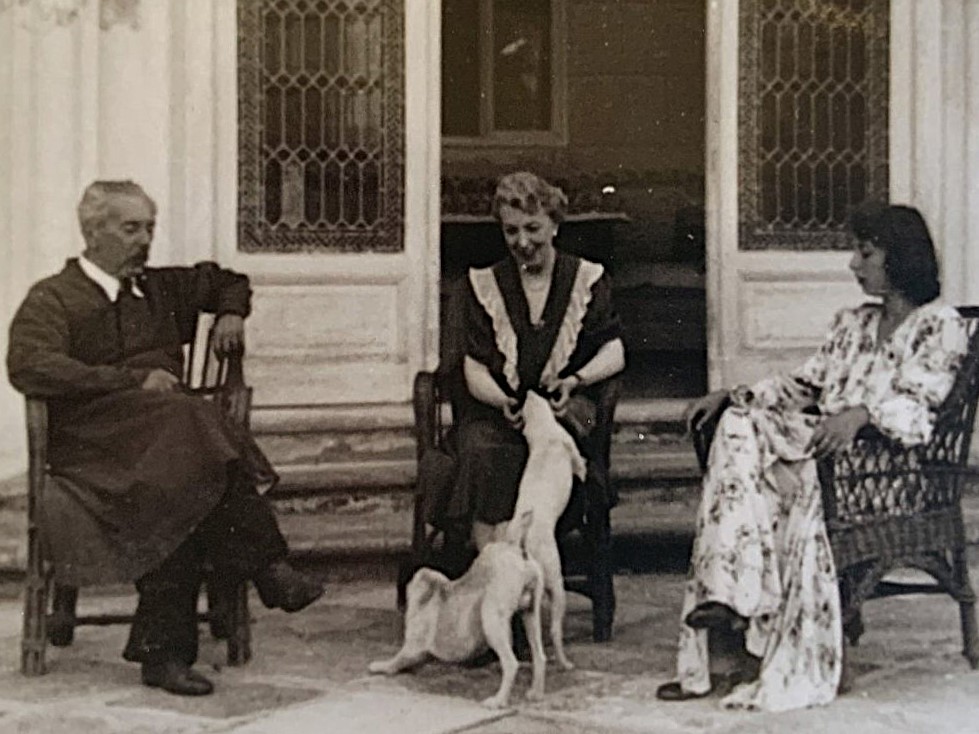
Substack Cusackiensis
For my sins, I have started a little “substack”, despite my objections to the entire medium. If you are the sort of person who is on Substack, you can find it here.
It is important to claim the territory to prevent any of the other Andrew Cusacks out there from nabbing it. A pre-emptive “substack”.
Theoretically it could inspire one to write more, though these days I prefer to write for people who pay me to.
In the Courts of the Lord

Well, not quite a lord, but a Vanderbilt — which in America is much the same. The indoor tennis courts at “Idle Hour” in Oakdale, L.I., were some of the grandest ever built in the United States.
The house itself, designed by Richard Howland Hunt for William Kissam Vanderbilt and completed in 1901, is unremarkable and not on the finer end of the spectrum. To me, it has all the glamour of a railway station serving a mid-sized town.
Just a year later, however, W.K. commissioned the architectural partnership of Warren & Wetmore — later famous for Grand Central Terminal — to design an extension that featured an indoor tennis court with adjacent guest quarters in a somewhat extravagant style.
As the polymathic Peter Pennoyer pithily put it in his The Architecture of Warren and Wetmore:
“The heavily rusticated stone of the gallery wall, exuberantly carved with atlantes and fanciful over-door sculpture and painted with scrolling frescoes, created a sculptural backdrop so surprising and original that it overwhelmed the vast open space of the court. For an ancillary building, the scale and energy of the architecture were tremendous.”
One can certainly imagine enjoying a refreshing summery gin-and-tonic on that loggia.
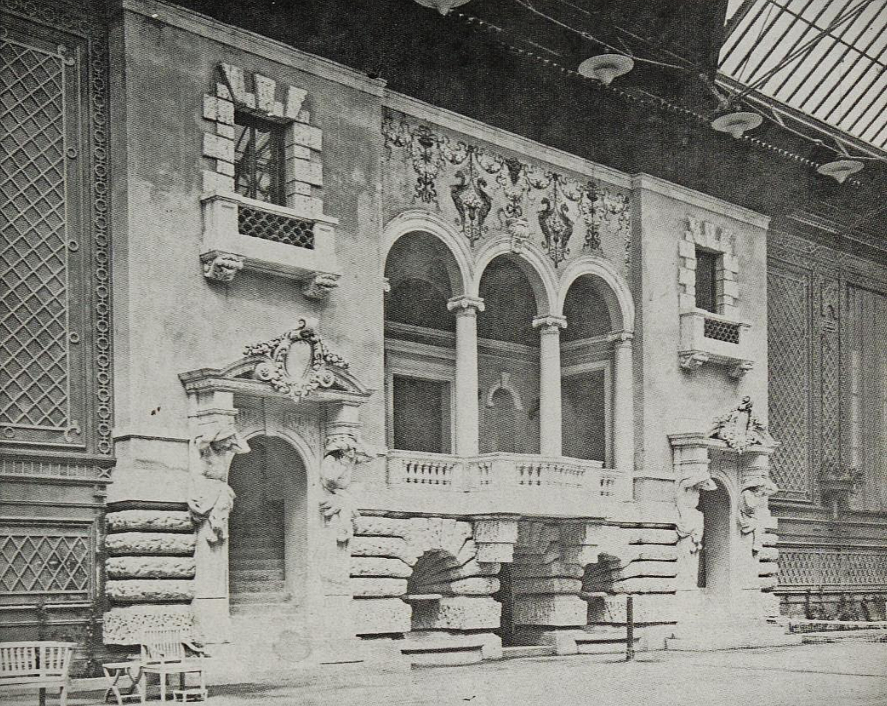
William Kissam Vanderbilt died in 1920. After a spell as an artists’ colony, in 1938 the estate was purchased by a cult called the Royal Fraternity of Master Metaphysicians, founded by a rogue named James Bernard Schafer who claimed he could raise an immortal child. (They also bought the old Gould stable on West 57th Street.) Schafer was jailed in 1942.
The National Dairy Research Laboratory took over the property and split the former tennis courts into lab space. Long Island’s Adelphi College bought Idle Hour in 1963 as an overflow campus which they later spun off into an independent institution, Dowling College, which shut in 2016.
For another indoor tennis court from the same period, see the old Astor place in Rhinebeck in the Hudson Valley.
Crux Alba Journal Launch
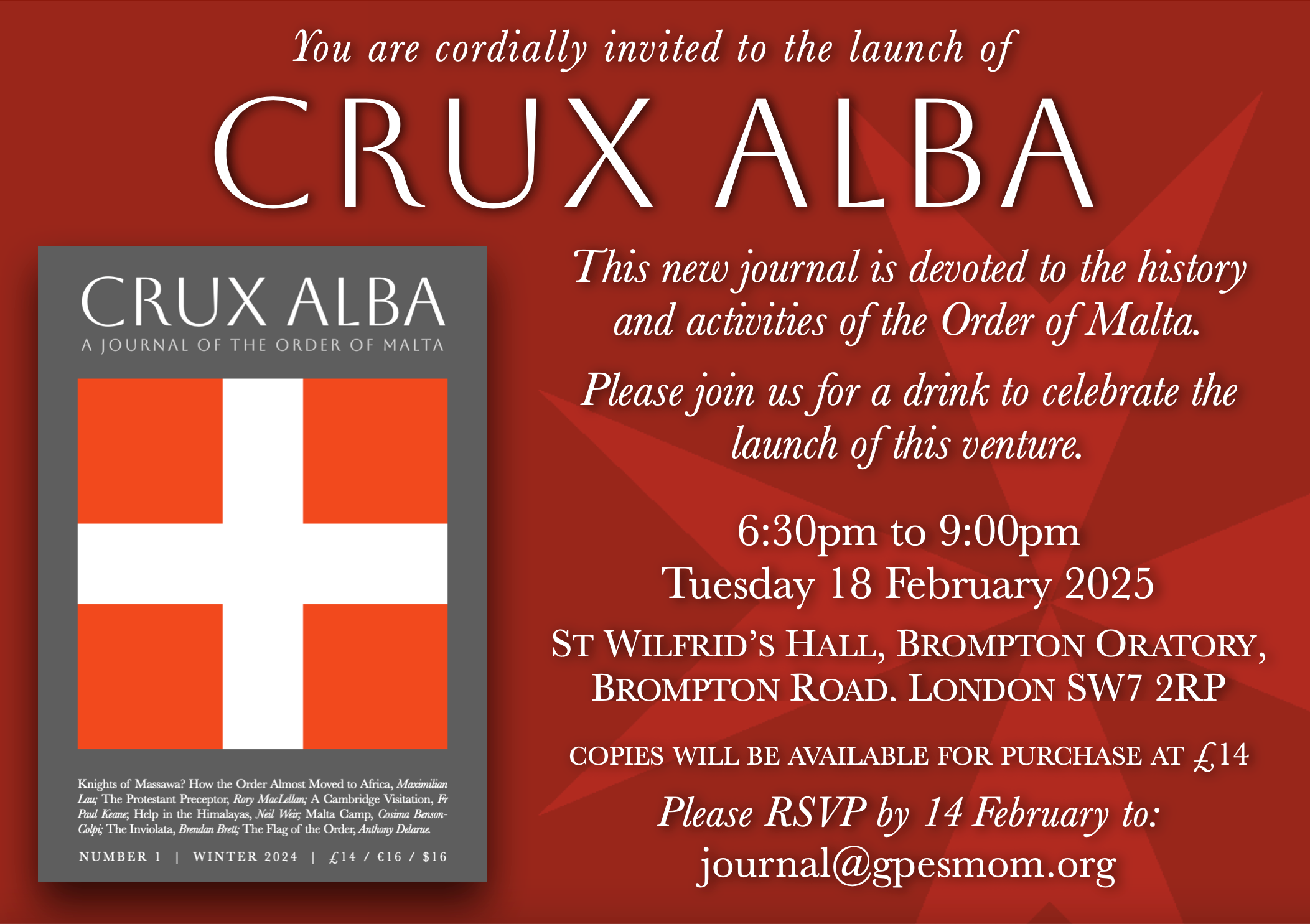
You are cordially invited to the launch of
This new journal is devoted to
the history and activities of the Order of Malta.
Please join us for a drink to celebrate the launch of this venture.
6:30pm to 9:00pm
Tuesday 18 February 2025
St Wilfrid’s Hall, Brompton Oratory, Brompton Road, London SW7 2RP
Copies will be available for purchase at £14
Please RSVP by 14 February to:
journal@gpesmom.org
Please share this invitation with others who might be interested in attending.
See also the Crux Alba website, Instagram, and Twitter.
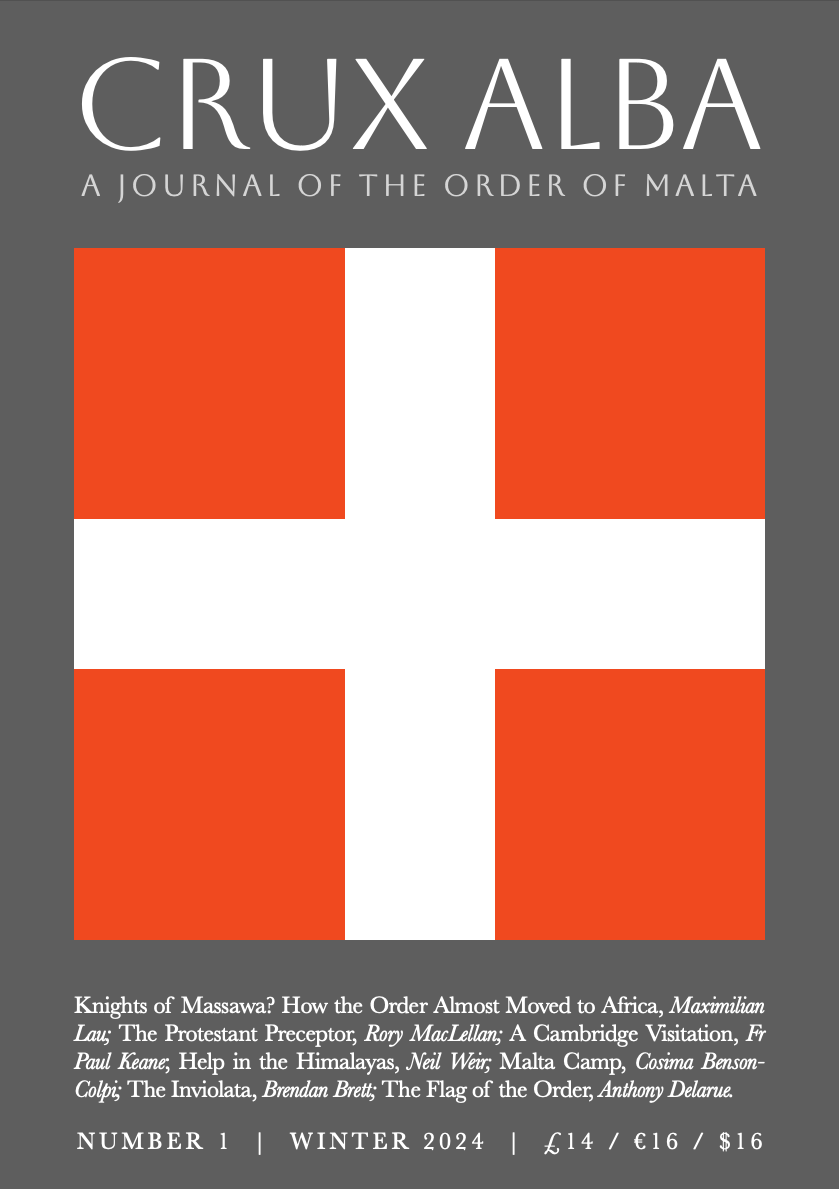
Articles of Note: 27 January 2025

Recently we welcomed the Latin Patriarch of Jerusalem, Cardinal Pizzaballa, to London on a visit of several days. He has what must be one of the most difficult jobs in the world, caring for Latin-rite Christians and their neighbours in Israel, Palestine, Jordan, Cyprus, and I think possibly the Sinai as well.
We first met in Jerusalem in 2023, so catching up with him for a second (and then third!) time to hear about the situation in the Holy Land was illuminating, if a bit depressing.
At First Things, Cole Aronson meets the Patriarch and explores his unique and demanding role.
■ The Pantheon in Paris, where secular heroes are entombed either physically or symbolically, presents one of the most intriguing aspects of France’s civil religion.
On the eightieth anniversary of the liberation of Strasbourg, President Macron announced that the academic, army officer, and father of the Annales school of historians Marc Bloch would be elevated to the Pantheon.
In the American Conservative, Luke Nicastro explores France’s newest hero.
■ Along with Frankfurt and Potsdam, Budapest has undergone one of the most comprehensive programmes of urban repair in recent years.
The Financial Times’s architecture critic Edwin Heathcote reports informatively, despite his simplistic conceptual error of slagging off rebuilding as reaction.
I’ll say it again: it’s not turning the clock back — it’s choosing a better future.
■ Candlemas is fast approaching but there’s still a few days left before the Christmas season ends properly.
The old-school Irish Protestant ‘Laudable Practice’ provides an excellent critique of a First Things piece: Old High Christmas Cheer, or Why the Oxford Movement Did Not Save Christmas.
Much good came from the Oxford Movement, but there is a tendency today to underestimate the levels and layers of cultural continuity in England across the centuries.
Laudable gets this right, pointing to how the Georgians celebrated Christmas. Nicholas Orme has written on how the feast of the Incarnation was kept in mediaeval England.
■ Finally, Lord Sumption peeks into the world of espionage in the Middle Ages.

Spooks’ Crown
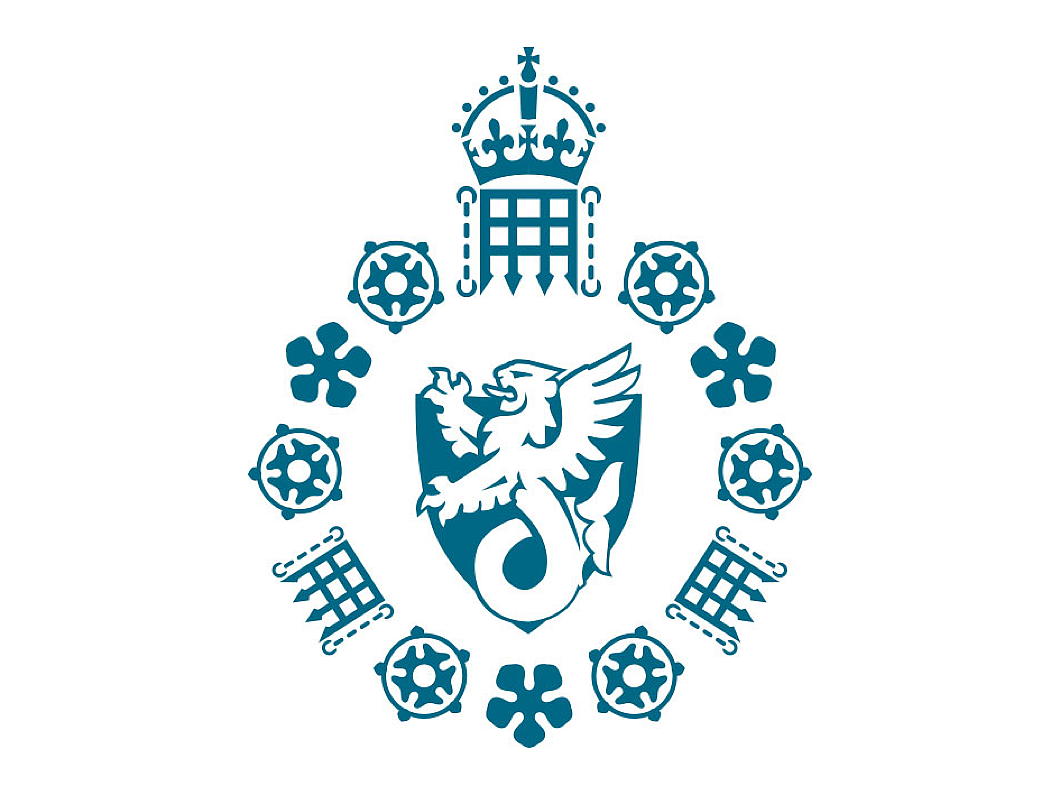
The Security Service, better known as “MI5” has changed its badge to incorporate the change from the St Edward’s Crown to the Tudor Crown that King Charles III has adopted.
The badge was designed by Lt-Col Rodney Dennys who himself had worked for the Security Service’s more glamorous rival, the Secret Intelligence Service (MI6). Dennys had started out in the intelligence game at the Foreign Office and was posted to the Hague before the war. When the Germans rolled in he was on one of the last boats to make it to Britain.
The MI5 emblem was approved by Garter King of Arms in 1981 but (like MI6) the Security Service was still so secret that it did not officially exist, so it was added to the secret roll of arms kept under lock and key in the depth of the heralds’ college in the City of London.
In 1993, after the Service’s existence was formally acknowledged, the badge became known and a flag bearing it often flies from the top of Thames House.

GCHQ has likewise adopted the Tudor Crown, but SIS has not publicly acknowledged any official emblem. (Perhaps it has its own entry in the heralds’ secret roll?) As such, MI6 uses a government version of the royal coat of arms, but theirs has yet to swap crowns.

A Christmas Gift from the Governor
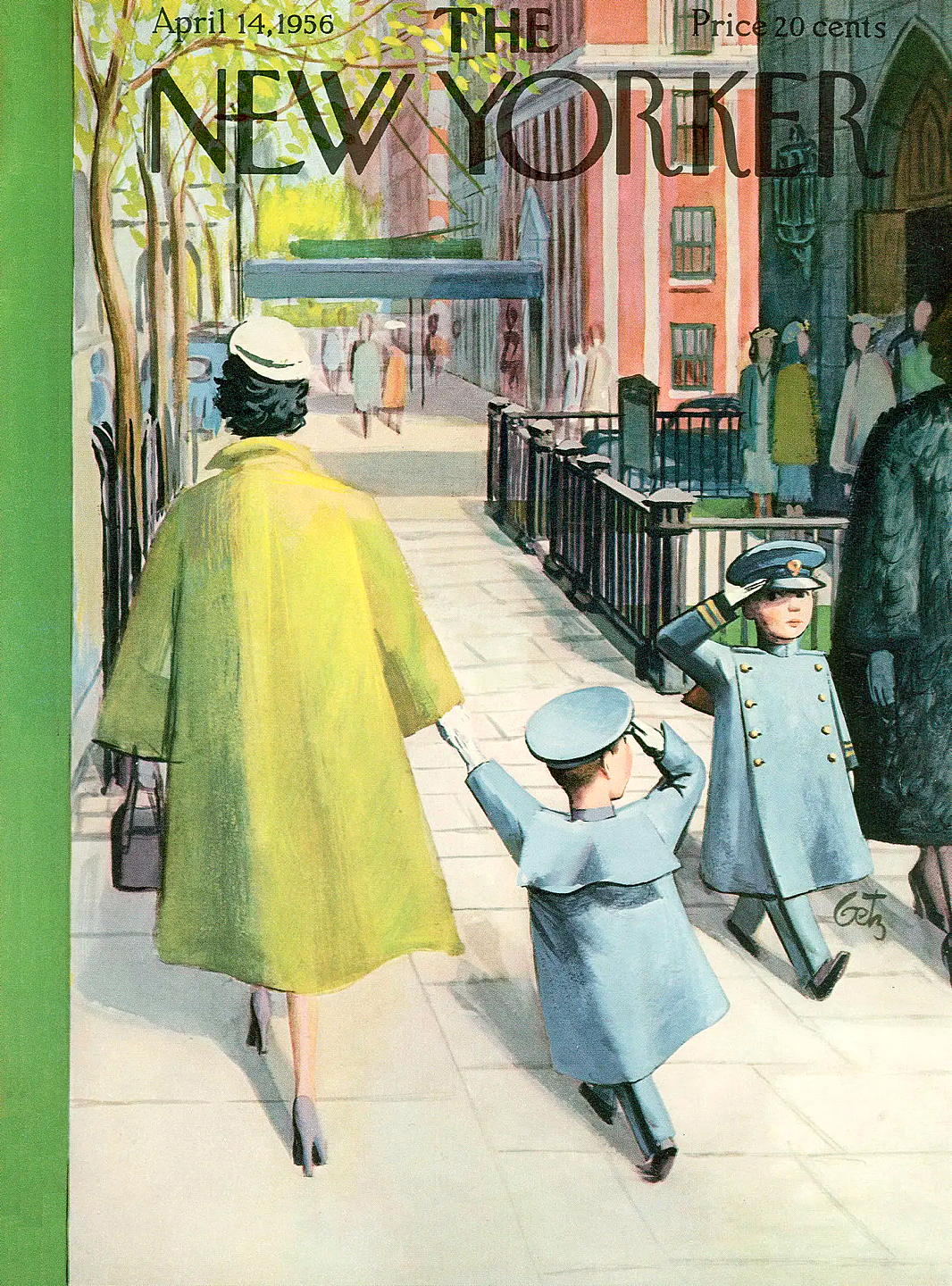
Just in time for Christmas: some excellent news for the Knickerbocker Greys.
Her Excellency the Governor of the great Empire State of New York has signed into law a requirement that this venerable Manhattan cadet corps be allowed to remain in its quarters at the old Seventh Regiment Armory (as The New York Sun reports).
Over recent years the Park Avenue Conservancy has restored the building — a gem of American architecture and interior design — but also effectively expelled the military units still based at the Armory.
The Greys managed to hold out in their “800-square-foot broom closet” (as the New York Post described it) but the Conservancy moved to evict the youth group in 2022. The Greys have fought the eviction in court.
In June a bipartisan bill guaranteeing the Knickerbocker Greys “access and use for permanent headquarters” of the Armory “for the purposes of programming during periods which are not periods of civil or military emergency” passed in the State Assembly and Senate but has only now been signed into law.
The hope is this new legislation will persuade the Conservancy to drop their eviction proceedings which the Greys have been challenging.

Monsieur Bayrou
Monsieur le président has appointed François Bayrou as Prime Minister of France – for how long, who knows.
It is worth revisiting the assessment of him the late Maurice Druon (1918-2009) published in the pages of Le Figaro in 2004:
Monsieur François Bayrou, a secondary character and destined to remain so, is remarkable only for his perseverance in undermining the higher interests of France. He eminently possesses what the English call ‘nuisance value’.
At what point did his self-image begin to cloud his judgement? Here is a Béarnais, the son of a farmer, who, gifted for studies, became an agrégé in classical literature. At twenty-eight, he took his first steps in politics by entering the office of Monsieur Méhaignerie, Minister of Agriculture. At the same time, he joined the centrist party that Giscard d’Estaing created to serve his personal elevation. This party, which participated in overthrowing General de Gaulle in 1969, would become the UDF.
Monsieur Bayrou settled there and prospered. He was elected general councillor in his native department, then regional councillor. He was also an advisor to Monsieur Pierre Pfimlin, to the presidency of the European Assembly. Monsieur Pfimlin was an excellent man in every respect, who exercised very high functions with rectitude. He had only one fault: he was a centrist, that is to say, like all centrists, he was mistaken about the hierarchy of values.
He is credited with having made Paris lose its status as the capital of Europe. Indeed, it was agreed between Adenauer and de Gaulle that the institutions of the European Community would have their headquarters nearby. A large complex would be built in the near Paris region. On this, Pfimlin, an Alsatian, intervened, proclaiming: “Strasbourg, Strasbourg… the link between France and Germany, between the two cultures… reconciliation… Strasbourg, a symbolic city!” Could Alsace be insulted? The Parisian project was shelved.
The move was well-intentioned, but it was a misjudgement.
Paris, a great metropolis of the arts and business, as well as an international communications centre, had all the attractions for Members of the European Parliament, diplomats, and civil servants; Strasbourg, beautiful but provincial, with limited entertainment and above all poorly served, requiring changes of plane to reach its often foggy aerodrome, exercised little charm on the new community population. If the monthly sessions of Parliament – at what cost and for how long? – continue to be held there, everything else, commissions and services, has moved to Brussels and it is Brussels that has become the administrative capital of the Union.
Let us return to Monsieur Bayrou, who is following a fairly typical political path. Elected to parliament, he quickly showed a ministerial appetite by making education issues a specialty. He founded and chaired a permanent group to combat illiteracy. A laudable program. Unfortunately, during the time he was Minister of National Education, illiteracy continued to increase and the general level of education continued to decline. Was it during this period that he experienced a somewhat excessive expansion of his ego?
It is said that one night he woke up the members of his cabinet, urgently summoning them to the ministry, to consult them on a vision he had just had of his presidential future. The anecdote has been circulated with too much insistence for there not to be, at its origin, some reality.
Why am I dwelling so long on Monsieur Bayrou, when we have concerns that seem to be of greater importance? It is because, not content with creating disorder in our domestic policy, he is currently acting contrary to the interests of France in the European Parliament.
Monsieur Bayrou is a candidate for the presidency of the Republic: we know that. He has made it known urbi et orbi and, stubbornness being in his nature, there is every reason to believe that he will be one for life. He also ran in 2002 and, having arrived at the back of the pack, with 6.8%, he immediately put on the jersey with the bib number marked 2007.
Assuring that he is part of the majority in the National Assembly in order to keep his electorate, he keeps his parliamentary group on the fringes, under the pretext of refusing corporatisation; he never stops criticizing the government’s actions, often using the opposition’s arguments, and only votes for it with his fingertips, when he does not abstain, visibly waiting for its fall. Beautiful political logic! This is what Monsieur Bayrou calls cultivating one’s difference. When one benefits from such great support, one ends up preferring adversaries.
His programme? It is made up of nothing but worn-out words and formulas that have become hollow from being used too much. It is as if we had returned to the “more just, more humane Republic” of thirty years ago. Everything ages – even demagoguery. […]
What a waste! And all in keeping. Those who stick around François Bayrou for career interests, like those who stay there out of personal loyalty, expose themselves to serious disappointments.
In politics, I have no other criteria than services rendered to the country.
Prince Talleyrand said: “Without wealth, a nation is only poor; without patriotism, it is a poor nation.”

Articles of Note: 12 December 2024
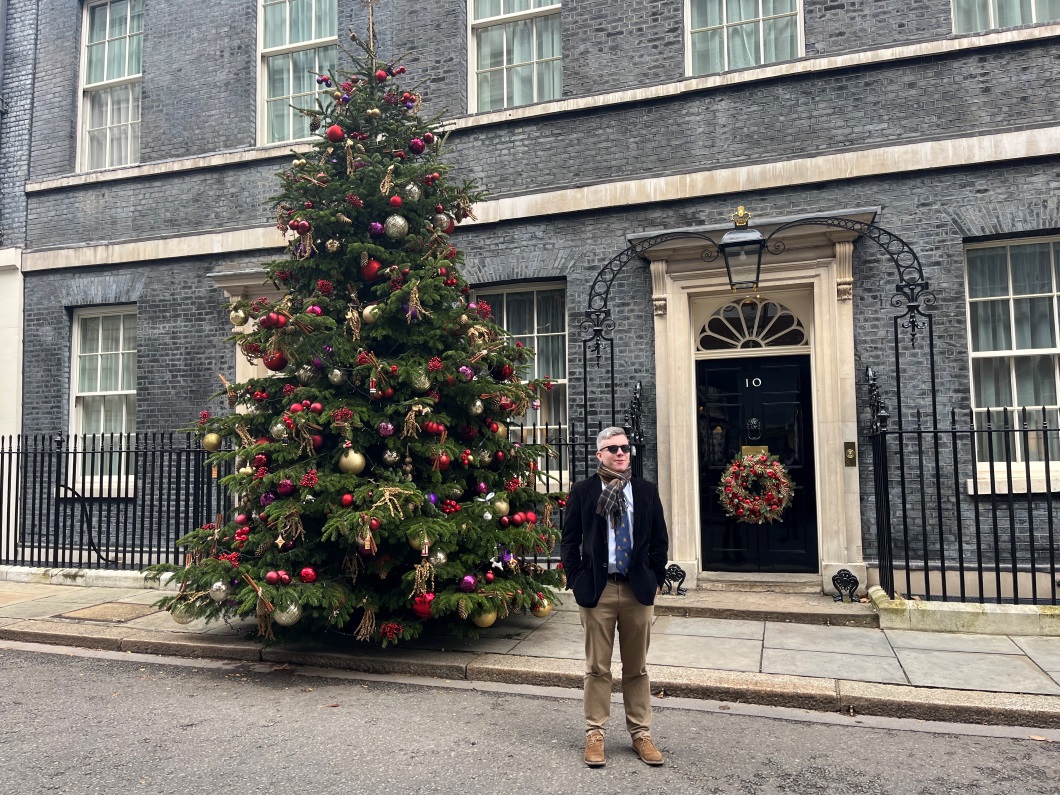
Luttwak first came to my attention when, about 10 or 11 years old, I was given a copy of Coup d’État: A Practical Handbook (I think one of the many I received from my relation Henry, R.I.P.). He has been interesting at every turn I have had to read him or his thoughts ever since.
Santi Ruiz of Statecraft has released a delicious new interview with Luttwak.
“Coups had been very common until about two years after the book was published, and then stopped,” Luttwak contends. “The reason is that authorities everywhere reverse-engineered the book. The book was published in English, and it was immediately translated into about 13 languages. It went all over the place. I think what happened is that people learned to reverse engineer.”
He relates the story of Gen. Oufkir’s attempted coup against Hassan II of Morocco: “Oufkir bled to death, and he did so over a copy of my book.”
Luttwak’s explanation of the Islamic Republic of Iran’s manipulation of the Israeli-Palestinian conflict to assert racial dominance over the Arabs is sharp.
■ Ever since school days, we are Argentinophiles. The Financial Times, of all people, has a helpful “long read” examining the surprising successes of President Javier Milei.
■ Dr Katherine Bayford writes on the rift that doomed the American Confederacy.
■ Dan Hitchens reviews the film ‘Conclave’.
■ Niall Gooch is always reliable on railways. He compares Britain’s rail woes with the experience of our continental neighbours and concludes that we are still in for difficulties:
Culture is just so hard to prod in a positive direction; people get stuck in their ways, and find it hard to move the assumptions and perspectives which dominate beyond the station forecourt. Yet, shifting the dial isn’t impossible, if the will is there, and this is yet another arena in which British offerings can improve.
■ The prospective — all though not yet assured — loss of London’s Smithfields Market is a portent of doom for the metropolis, Sebastian Milbank prophesies.
One day, I believe, we will have to reclaim London for England, and create an economics of human flourishing rather than of usurious speculation and rent-seeking.
He is right, of course, and I think this will happen, but the English are slow movers and our political class is pretty immured from the ideas and thinking going on below.
The emerging consensus hasn’t yet reached up to those actually making decisions, and it may be five or ten years before it does. Much more damage can be done in the mean time.
■ “Turning back the clock is proverbially impossible in history,” Wessie du Toit writes, “but apparently not in architecture.” An exploration of the architectural ambitions of Viktor Orban.
■ We are well into the preparatory tide of Advent. The ever-estimable Eleanor Parker reminds of Conditor Alme Siderum, one of the office hymns of this season.
Season’s Greetings from the Seventh

Alas, the Seventh Regiment Mess is no more, though we had a few family Christmas-time (and other) celebrations there in its final years.
Happy days when Linda MacGregor was at the helm of it.
Make Merry in thy Festival

I nipped over to Civitas in Tufton Street yesterday for the launch of Esmé Partridge’s report Restoring the Value of Parishes: The foundations of welfare, community, and spiritual belonging in England.
She has produced a succinct and well-researched overview of the crisis facing Church of England parishes not just in rural areas but in our towns and cities too.
The discussion following had strong contributions from Danny Kruger MP, Imogen Sinclair, the Rev’d Marcus Walker of Great St Bart’s, Rebecca Chapman who sits on the Anglican Church’s General Synod, Eddie Tulasiewicz of the National Churches Trust, Bijan Omrani, and more.
As a devotee of England’s cult of the saints, what interested me particularly was the contribution from Rupert Sheldrake of the Choral Evensong Trust.
 He explained that the CET was doing its bit for parish churches by creating a Patronal Festival Grants scheme to encourage more churches to celebrate the feast of their patron saint or dedication.
He explained that the CET was doing its bit for parish churches by creating a Patronal Festival Grants scheme to encourage more churches to celebrate the feast of their patron saint or dedication.
Grants of up to £500 are available to provide for choral evensong sung by a visiting choir and – deeply important – a party afterwards at which food and drink are free to those gathering.
“For example,” the Trust informs us, “at St Michael and All Angels in Dinder, near Wells, over ninety people attended a choral evensong on Michaelmas, sung by the Wells Cathedral Chamber Choir. The church was filled to capacity, with many attendees participating in church activities for the first time.”
This is a genius scheme for encouraging greater devotion to the saints as well as more frequent use of now sadly often shut C-of-E parish churches.
As it says in Deuteronomy, “thou shalt make merry in thy festival time, thou, thy son, and thy daughter, thy manservant, and thy maidservant, the Levite also and the stranger, and the fatherless and the widow that are within thy gates.”
More information on the CET’s 2025 Patronal Festival Grants can be found here and the deadline for next year’s applications is Candlemas (2 February 2025).
That evening I was a guest at high table in an Oxford college which is exhibiting signs of health and societal repair.
A few years ago, the head of house disregarded the strident protests of the students and banished the college grace as well as all dress codes for dining. (To the gratitude of many, she did not last long.)
After this unwelcome interruption, the college grace before meals has now been restored (in Latin), in addition to the return of formal meals with gowns (and, on Sundays, black tie).
In some place, where you let it and protect it, nature is healing.
Meanwhile, below, some beautiful music for Advent from my own parish church, St George’s Cathedral in Southwark.
This beautiful performance of Veni, Veni, Emmanuel by Malakai from St George’s Cathedral Choirs, performed at St George's Cathedral is a reminder that Jesus is God with us who witnessed to the love of the Father by dwelling among us.@StGeorgesCath @StGeorgesChoirs pic.twitter.com/L8VY31FmNA
— Archdiocese of Southwark (@RC_Southwark) December 5, 2024
Amsterdam

Is die Amsterdamse stadsargitektuur die mees hemels in die wêreld? Winkels, huise, alles baie aangenaam. Burgerlik. (Ek moet teruggaan.)
Die Nederlanders het ’n samelewing met ’n semi-republikeinse mentaliteit maar met (amper) al die geseënde vrugte van ’n koninkryk. Beste van alle moontlike wêrelde…
The Lithe Efficiency of the Old Constitution
There is a wonderful glimpse of the old days in the memoirs of the late Lord Waddington (1929-2017).
David Waddington was a Lancashire man who became a lawyer, Member of Parliament, Government Chief Whip, Home Secretary, peer of the realm, and eventually Governor of Bermuda. (In that final role, he was the last of the big dogs — all the ones since have been civil servants.)
The old British constitution — before New Labour’s ill-judged reforms — had a lithe efficiency in those days aptly reflected in quite how few people were employed by the highest court in the realm — and how unfussedly they were officed:
I had only been in the House for two days when I received a telephone call from the clerk of my Manchester chambers asking me if later in the week I was prepared to sit as a deputy County Court judge somewhere in London. This would allow my colleague Bob Hardy, who had contracted with the Lord Chancellor’s Department, to sit as a judge on that day, to take over a brief of mine, a libel action in Leeds.
At the eleventh hour someone pointed out that if I were to sit, my career as an MP would come to an abrupt end because as a result of the House of Commons Disqualification Act I would have disqualified myself from membership of the House, thereby precipitating another by-election. I was then begged by Bob to go and explain to the lady in the Lord Chancellor’s Department why he could not sit and why I had turned out to be an inappropriate replacement.
I set off and, after journeying along many corridors and ascending and descending many staircases, I eventually found a little old lady sitting alone in a tiny office at the bottom of a gloomy stairwell somewhere in the bowels of the House of Lords.
I apologised for troubling her and she said: ‘I can assure you it is no trouble. In fact I am delighted to see you. I have been in this office for thirty-five years and you are the first person who has ever visited me.’
Articles of Note: 17 September 2024

31½ in. x 59 in.; (link)
The Lebanese banker, writer, journalist, and politician Michel Chiha postulated that Beirut was “the axis of a three-pronged propeller: Africa, Asia and Europe”.
The city’s current airport was inaugurated in 1954, towards the height of its golden years.
In L’Orient-Le Jour, Lyana Alameddine and Soulayma Mardam-Bey report on how Beirut Airport’s story reflects the highs and lows of Lebanon’s history. (Aussi en français.)
■ Another one bites the dust: this time it’s London’s Evening Standard — traditionally the most London of London’s daily newspapers — which recently announced it will move to a single weekly printed edition.
In its heyday there were several editions per day, with “West End Final” on rare occasions topped up by a “News Extra” edition.
Stuart Kuttner, a veteran of the Standard, wrote a beautiful paean to the paper published in the Press Gazette.
■ Samuel Rubinstein shows how historians’ war of words over the legacy of the British Empire tells us more about the moral battles of today than shedding actual light on the past.
■ Wessie du Toit explores the curious columnar classicism persistent across the full spectrum of South African architecture.
■ With union presidents speaking at America’s Republic party convention, Senator Josh Hawley explores the promise of pro-labour conservatism.
■ Also at the increasingly indispensible Compact, Pablo Touzon explores how the Argentine left created Javier Milei.
■ Closer to home, Guy Dampier argues that Britain’s public services, housing, and infrastructure have reached their migration breaking point and the new Government has zero solutions.
■ Meanwhile, five hundred academics have signed a joint letter urging the Labour government not to scrap university free speech laws as the Education Secretary announced they will do.
11½ in. x 16½ in.; (link)
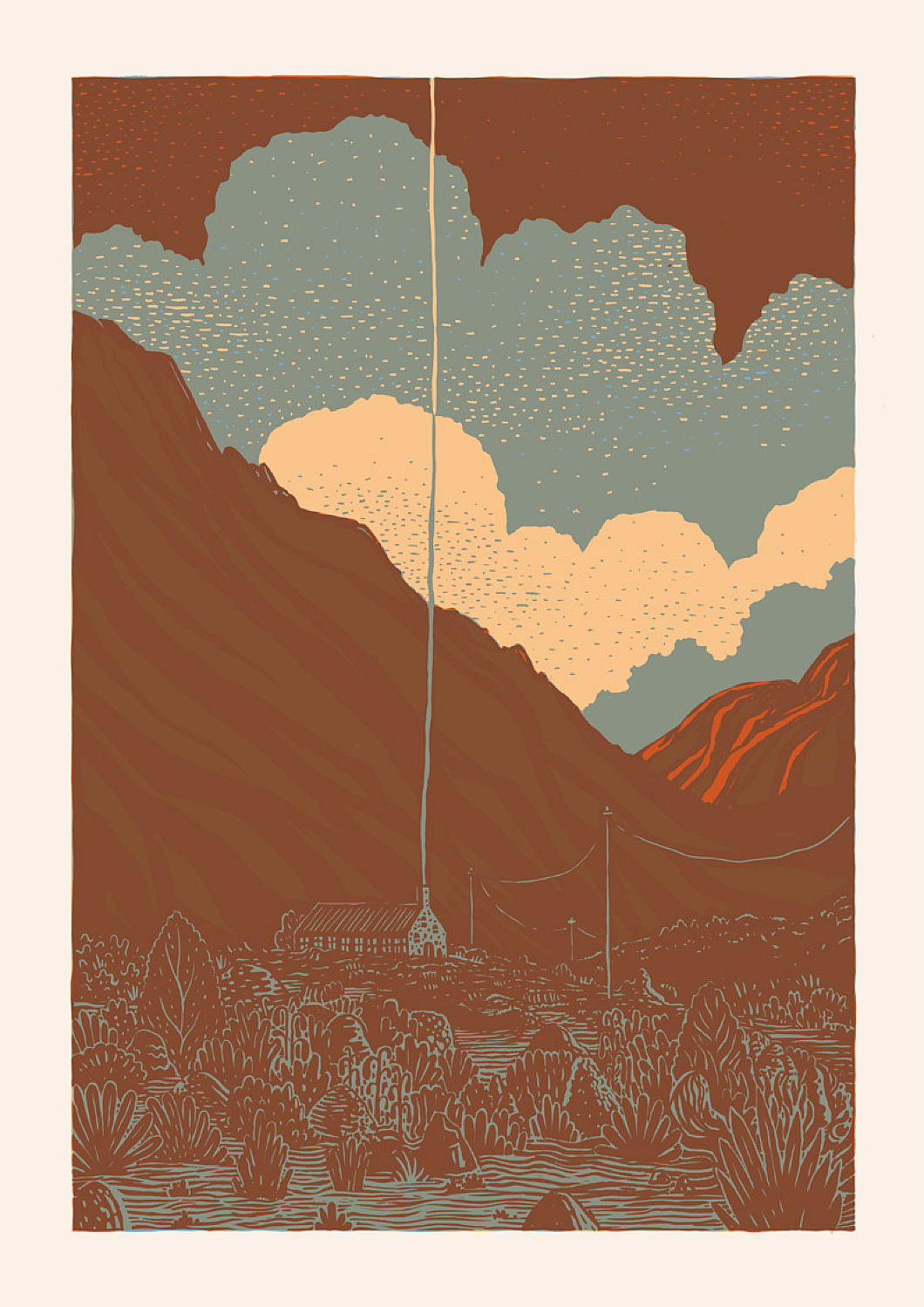
Israel’s Hebrew-speaking Catholics

In Jerusalem I had the privilege of interviewing Fr Piotr Zelazko, the Polish priest who heads the Saint James Vicariate for Hebrew-Speaking Catholics.
The  community he looks after is a fascinating one and adds even more complexity to the rich tapestry of Christianity in the Holy Land.
community he looks after is a fascinating one and adds even more complexity to the rich tapestry of Christianity in the Holy Land.
The article is now up in its full form at the Catholic Herald online — including comments from Cardinal Pizzaballa, the Latin Patriarch of Jerusalem — and a slightly shorter version appears in July’s summer issue of the magazine.
(My contribution to their summer books list is also in the July issue.)

Music, the Hospitallers, and the Tudors

This will take place in the Chapter Room of the Grand Priory of England at 7.00 pm on Thursday 18 July 2024.
All are welcome, and a voluntary contribution of £10 will be collected.
Articles of Note: 20 May 2024
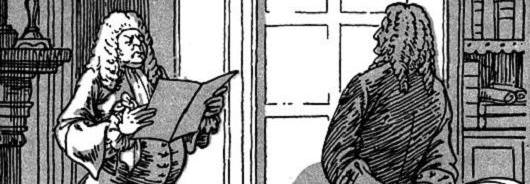
British right-liberals are sometimes accused of yearning for “Singapore-on-Thames” but they would, for example, recoil from the state-backed housebuilding that Singapore relies on.
The indomitable Lola Salem visited the flourishing Straits state.
“In everyday life,” she writes, “the state endeavours to demonstrate its relevance and ensure citizens feel that they have a stake in what is achieved in their name.”
But the foundation of Singapore’s undeniable strengths is “a complex tapestry of trade-offs that Western leaders wilfully or inadvertently ignore.”
■ Romania is a delight to visit, but I have only been to Transylvania which is somehow another category entirely. A bit like if you’ve been to Britain, but only (“only”) Scotland.
Christopher Brunet says that Romanians themselves tell foreigners to visit Transylvania and avoid their own capital city. He decided to do the opposite and spent a month as a boulevardier in Bucharest.
Brunet reports back that Romania is quietly doing great.
■ Without meaning to damn with faint praise, David Warren is one of the great Canadians of our age. I long felt an almost spiritual connection to him but, though we have never met in person, I assuaged myself that we were at least infrequent correspondents.
One day I went to check when was the last email I had from him only to be surprised to find that I had never, in fact, corresponded with him at all. So I wrote to him and told him this, which provoked a reply saying that he too had assumed we had written to one another several times. Two mastodons bellowing across primieval swamps, or the Atlantic ocean, or the Canadian border when I was still in New York.
Amongst David’s many accomplishments was the foundation and editorship of The Idler (1985-1993), the greatest Canadian magazine ever printed. Canada generously shovels endless cash at its literary efforts in the hope of producing something homegrown that can survive the onslaught of popular culture from its peaceful neighbours to the south.
Despite critical acclaim and obvious excellence, The Idler’s unfashionable conservatism meant that it never had access to the largesse distributed by the Canada Council for the Arts. As that body funded 96 different publications, David branded The Idler as “Canada’s 97th best literary magazine”.
David writes about his experience editing the review that described its ideal reader as “a sprightly, octogenarian spinster with a drinking problem, and an ability to conceal it”.
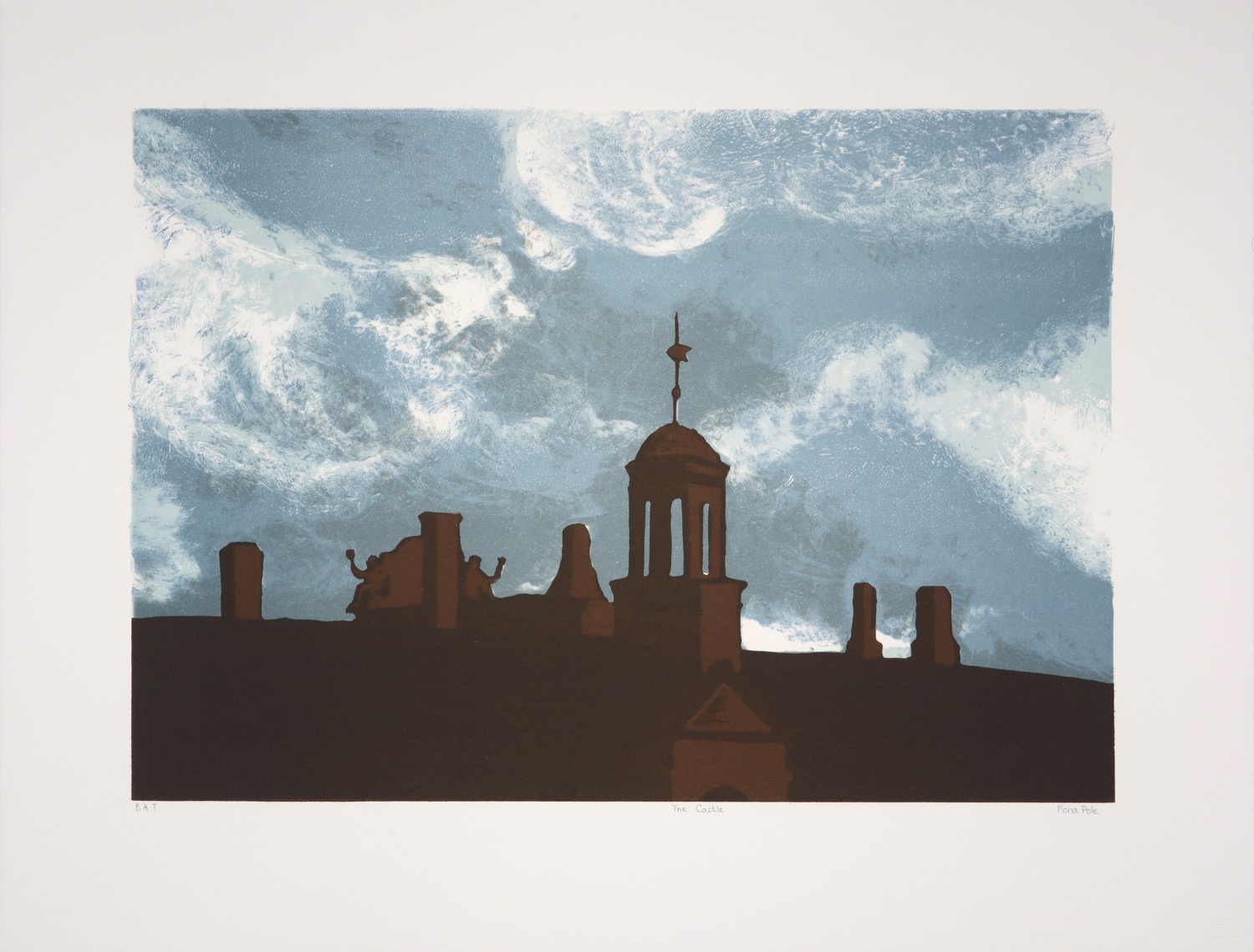
19¾ in. x 26 in.; (link)
■ Edinburgh was the site of the second-most venerable legislature in the English-speaking world, and it is worth wending a wander into Old Parliament Hall — one of the city’s three parliament buildings.
We’re all familiar with the way the House of Commons sits, having inherited the antiphonal seating of the old Chapel Royal of St Stephen in the Palace of Westminster.
At Old Edinburgh Reborn, Dr Robert Sproul-Cran has penned a very thorough examination of how seating was arranged in the Estaits of the Realm, the Scots parliament of old.
■ It would take a heart of stone not to be amused by the life and times of King Zog of Albania. He may have been a vulgar gangster but he had a certain flair, and one appreciates the imaginative even when it is self-aggrandising.
Daniel Marc Janes reviews a new book about the Illyrian potentate.
(And if you haven’t read the Albanian writer Ismail Kadare, you should.)
■ The sheer freakishness of American campus life is as fascinating as it is alarming.
The universities of the United States are some of the most influential factors of social control in the world, and whatever weird innovations you experience in your professional or public life worldwide today are usually explained by something that was going on at Yale or Stanford five or ten years before.
Ginevra Davis has written a sad chronicle of Stanford University’s war against social life. They even let an artificial lake go dry to stop people enjoying it!
■ What is more satisfying than the brilliant self-taught amateur who outshines the experts?
John Steele Gordon writes about the great astronomer E.E. Barnard.
■ A new documentary film about South Korea’s founding father, Rob York reports, has led to a newfound appreciation of the much-maligned Syngman Rhee.
■ I am a fan of the neglected postwar American conservative thinker Peter Viereck, and of course everyone is a fan of Metternich. (Viereck was previously mentioned here in January thanks to Samuel Rubinstein.)
Hamilton Craig covers both figures in his suggestion of how Yoram Hazony’s “NatCon” conferences can learn from Austria’s greatest chancellor.
■ I recently wrote about Telephone Kiosk No. 2, but Clive Aslet does it better.
■ Mary Harrington claims that conservatism is dead and the future belongs to right-wing progressives like Bukele.
■ Whoever Pimlico Journal is says we need to stop valorising dead centrist Tories.
■ And it turns out that the role of Patriarch of Constantinople is actually an arms-length Langley job. (Caveat emptor.)

30⅓ in. x 22½ in.; (link)
Telephone Kiosk No. 2

This must surely be the most beautiful and easily recognisable example of street furniture in the history of the world.
Scott wanted them painted a silvery hue, with a greeney-blue interior.
Instead, the Post Office, which had taken over the public telephone network in 1912, decided to paint them in its regal red livery.
I think they made the right decision.
This one can be found in Trinity Church Square, Southwark.
Search
Instagram: @andcusack
Click here for my Instagram photos.Most Recent Posts
- Faithful Shepherd of the Falklands April 8, 2025
- Articles of Note: 8 April 2025 April 8, 2025
- Proportionality Destroys Representation April 8, 2025
- Sag Harbor Cinema March 26, 2025
- Teutonic Takeover March 10, 2025
Most Recent Comments
Book Wishlist
Monthly Archives
Categories


